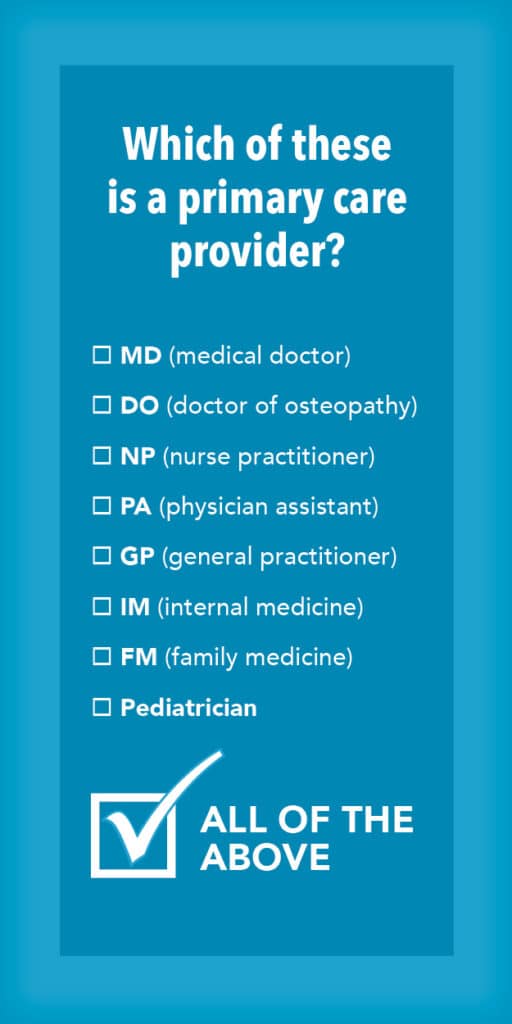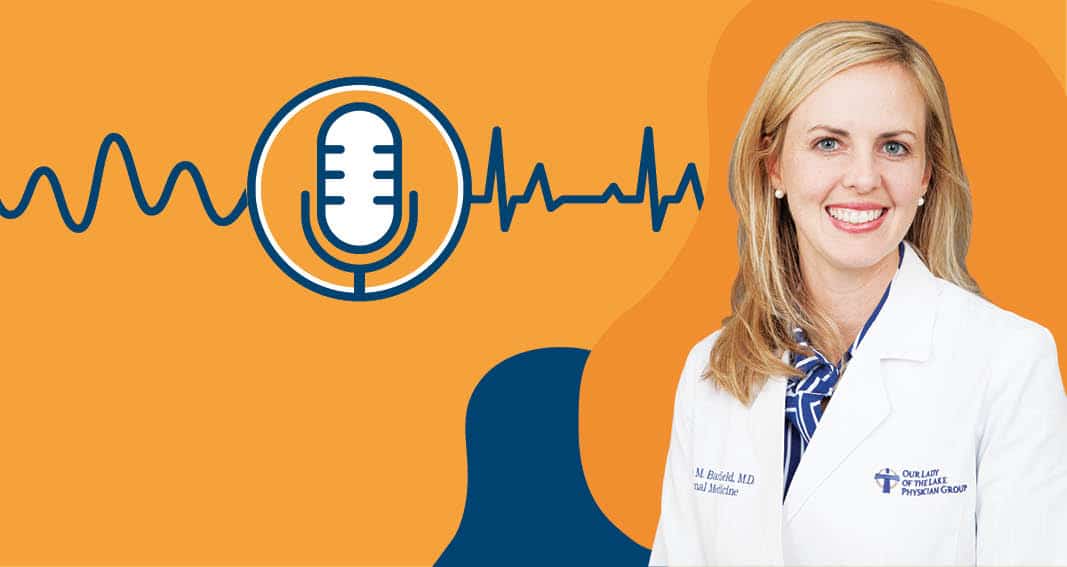Take the first step to take care of your health and start a relationship with a primary care provider. It’s incredibly important.
That’s the message from podcast guest Lauren Barfield, MD, senior medical director of adult primary care for our health system and practicing primary care provider with Our Lady of the Lake Physician Group.
Dr. Barfield shares why building a relationship with a primary care provider is crucial for your well-being.
From Patient to Primary Care Provider
Dr. Barfield traces her passion for primary care back to her small town, where the local doctor served as a pillar of the community.
“I really loved the relationship that I had with my primary care doctor growing up,” Dr. Barfield says. “He took care of me, my parents, my grandparents, my aunts, my uncles. I loved the relationship and continuity of his care.”
Driven by her own experiences as a patient, Dr. Barfield set a goal to become a primary care provider. She was even able to rotate with her hometown doctor’s practice during medical school.
Doctors are patients, too, and Dr. Barfield shares how important the relationship with her own PCP is to her now.
“I definitely am very grateful to have my own primary care doctor to be able to reach out whenever something new or different is happening that I’m unfamiliar with,” she says.
The Language of Primary Care
Dr. Barfield untangles primary care jargon, by explaining the differences between all the types of doctors, physician assistants and nurse practitioners who provide primary care.
 “GP is kind of an old term,” Dr. Barfield says, referring to general practitioner. The modern terms are family medicine and internal medicine, which is her specialty. Family medicine providers offer care for the whole family, including children. Internal medicine providers deliver care for adults.
“GP is kind of an old term,” Dr. Barfield says, referring to general practitioner. The modern terms are family medicine and internal medicine, which is her specialty. Family medicine providers offer care for the whole family, including children. Internal medicine providers deliver care for adults.
“We’re all trained to take care of chronic diseases such as diabetes, hypertension and high cholesterol,” Dr. Barfield says. She recommends a good relationship with a trusted provider before chronic disease develops.
A PCP as Your QB
Prevention is a top goal for primary care providers.
“Sometimes we’ll refer to them as quarterback of the team,” Dr. Barfield says. “The quarterback knows all the plays and has an overarching view of what’s going to happen. That’s kind of how we see our role as primary care providers.”
The proactive approach to preventive care is grounded in the trust and familiarity that develop in the patient-provider relationship over time.
“If you think about any relationship you have, you wouldn’t just walk up to somebody brand new and just tell them your deepest, darkest secrets,” Dr. Barfield says. “Your health is so personal and it’s really very precious as well.”
Not having to start from scratch with your health and having a trusted person to help navigate all concerns is worth the time it takes to find a provider.
Invest in Your Health
Getting established with a primary care provider is an investment in your own health. It also saves money in the long run.
Dr. Barfield uses the examples of diabetes and hypertension, which impact many people in the South. “If we don’t keep our health in check and those disease states get away from us, it starts to compound the financial strain on a family.”
Dr. Barfield compares prioritizing primary care with up-keep and maintenance on a new car. “We should be investing as much time and energy on the preventive side of our own health,” she says.
Good Health for Women Includes Primary Care
An advantage to seeing a provider within a larger health system is seamless connection to specialists when needed. For women that includes gynecology and obstetric care.
While an OB-GYN can provide some primary care services, women are more than the sum of their lady parts.
Women need both a primary care provider and a reproductive health specialist in an OB-GYN. It’s not either/or but both/and.
“OB-GYNs are extremely busy with babies and surgeries, so many of them will refer to us to help them navigate the other elements of care,” Dr. Barfield says. “We work in concert, communicating with one another to make sure all screenings are covered.”
Quality Care Starts with Listening
At the heart of Dr. Barfield’s practice lies a simple yet profound philosophy: listening is the cornerstone of effective care. She emphasizes the importance of taking the time to truly understand each patient’s concerns and experiences.
“You have to understand someone’s whole story to be able to understand how to best care for them,” she says. “I try to spend as much time as I can in that first visit to really get as much information as I can to understand, start that relationship and build trust.”
Continuity of Care with Easy Access
In an era defined by digital connectivity, Dr. Barfield recognizes the importance of maintaining patient-provider relationships outside the clinic. Leveraging innovative tools such as MyChart and video visits, our health system ensures seamless communication and support between appointments.
“MyChart has been very helpful in maintaining that quick access,” Dr. Barfield says. “We also have virtual extended hours, which allows our patients to see providers past the time that I would be in clinic.”
Don’t Delay – Prioritize Your Health Today
Every day that you maintain your health and prevent disease is worth the effort it takes to get established with primary care.
“Don’t be scared of taking the first step to take care of your health,” Dr. Barfield says. “Health is something that we can’t get back and it’s precious to us. If you’ve had a bad experience in the past, try again to find that right match.”
She encourages patients to make the effort. “Log on, find a good primary care doctor and start that relationship.”




